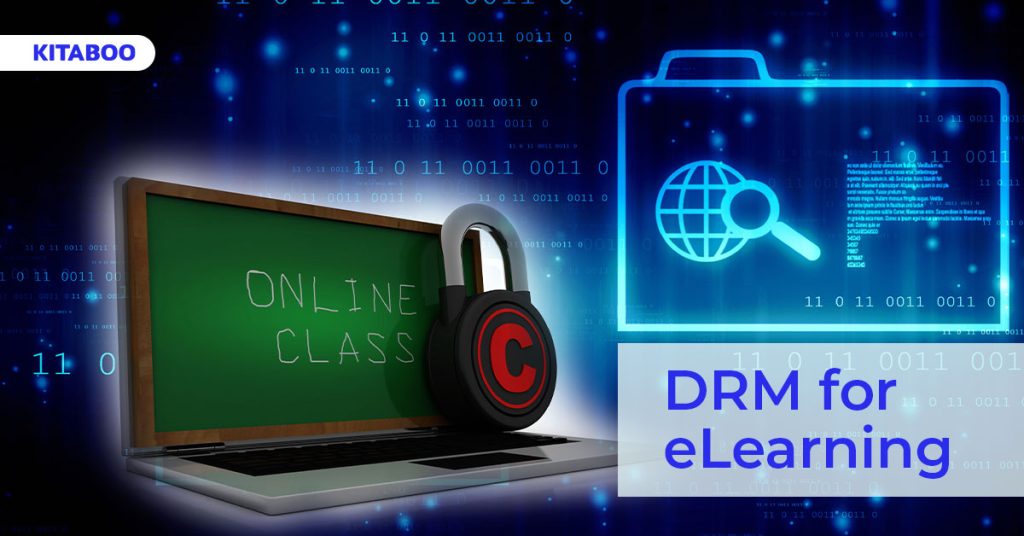
How to Create K12 Content for Any Online Education Platform
Although technology has become a part of every aspect of our lives, there is one aspect where it stands out. Undoubtedly, online education is the future and is one of the most effective ways to provide students with a quality education. There are already a number of online education platforms available today, and the current trend shows that demand in this industry is skyrocketing.
In this article, we’ll take you through the different types of educational platforms one comes across and how K12 eLearning content can be created for these platforms securely through DRM (Digital Rights Management).
Types of Online Educational Platforms
There are various types of learning platforms that follow different methodologies and strategies to impart education. Let’s look at some of the most popular ones in demand today.
Massive Online Open Courses
Massive Online Open Courses, or MOOCs, have become immensely popular in recent years. They offer affordable distance learning and employ a self-paced format where learners can access pre-recorded content. This freedom to learn as per one’s convenience, makes these platforms immensely popular with students and professionals alike.
While most MOOCs are free to use, a few platforms charge a small fee if the learner wants a certificate of completion.
Learning Management System
A Learning Management System(LMS) is a type of online educational platform that stores large amounts of digitized teaching materials. LMSs facilitate the administration and delivery of educational content. They are designed to help educators analyze data and identify learning gaps. A LMS allows educators to manage their content and automates certain tasks from any remote location.
LMS’s are becoming immensely popular in the K12 education space as well as with corporates for onboarding, employee training, and seminars.
One-on-One Online Learning Platforms
One-on-One learning platforms are great for anyone who wants to focus on a specific subject and learn at a time that suits them.
The biggest advantage of these types of learning platforms is that educators can create customized learning plans tailored to individual needs. This type of learning can be highly beneficial to those trying to learn a new language, prepare for specific exams or even just improve their expertise in a specific area.
Online Group Learning Platforms
Online Group Learning Platforms or Collaborative Learning Platforms have gained immense popularity especially after the Covid-19 Pandemic.
These types of learning platforms focus on fostering interactions between learners themselves and between learners and instructors. Educators can hold sessions where everyone can share their thoughts and opinions on specific topics, which can greatly improve their understanding of the subject. In some cases, assignments can also be evaluated by peers.
The best part of these collaborative platforms is that this approach adds a level of depth to one’s understanding of the subject matter.
Bidding-Based Online Learning Platforms
These systems are unique as they allow students to post questions or doubts and receive proposals or bids from tutors who wish to help them solve it. Students can then choose who they would like to get tutored by on the topic, based on the tutor’s profile, price, and reviews.
The biggest advantage of these platforms is that they give students complete control over their learning process. This helps those students who are better self-learners.
Why Digital Rights Management Is Crucial in Creating eLearning Content
The eLearning industry is in a tricky situation.
On the one hand, learning materials have traditionally supported sharing & collaboration. For e.g. – Students share notes or textbooks with each other. On the other hand, the effort required to create eLearning content and the benefits of this kind of content have increased exponentially. e.g . – It may be difficult to create an interactive video explaining a complicated subject without professional help. However, once the video is created, teaching a student becomes much easier.
In such a scenario the eLearning industry needs some checks & balances to stay fair to all involved. Meaning, that while nobody wants to restrict learning, content creators on online learning platforms should be able to share their material without worrying about its misuse.
This is where Digital Rights Management becomes crucial to eLearning.
Benefits of Using Digital Rights Management on Online Education Platforms
Digital Rights Management (DRM) allows the content creator to assign layers of rights to every user.
For example – An organization might not have restrictions on the number of people they share the content with, while an educator from the same organization may only be able to share the content with their students. Similarly, the students may have little or no right to share the content further.
The same applies to edit access, the duration one can access content, parts of the content that can be accessed and so on. These layers of rights can be changed by the creator at any given point of time. This ability to track usage via a DRM protected eBook also makes organizations more accountable for the learning materials they provide.
To Wrap Up
As you can see, with the various forms of online education platforms that are available today, it has now become almost imperative for every educational content creator to turn to DRM eBooks.
If you are a content creator looking for a robust and easy-to-use platform that helps you create, publish and distribute your digital content online, KITABOO is one you might want to consider.
KITABOO is a digital publishing platform that allows users to create, upload, publish, convert, or even enhance their eBook content. Most importantly though, KITABOOs 128-bit encryption offers top-notch DRM protection for all your eLearning content. So, create away!
To know more, write to us at contact@kitaboo.com
Discover how a mobile-first training platform can help your organization.
KITABOO is a cloud-based platform to create, deliver & track mobile-first interactive training content.


